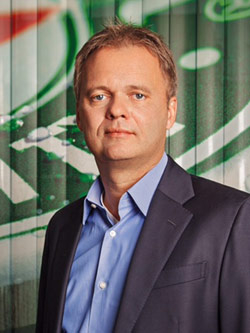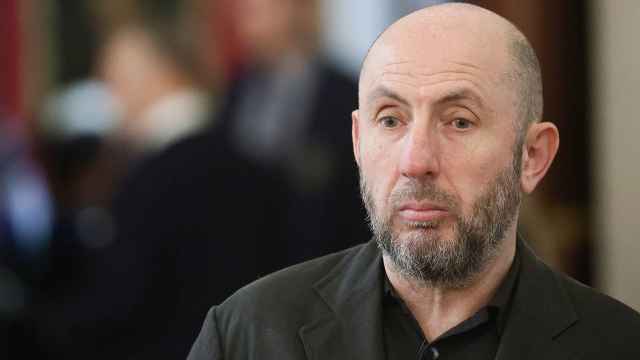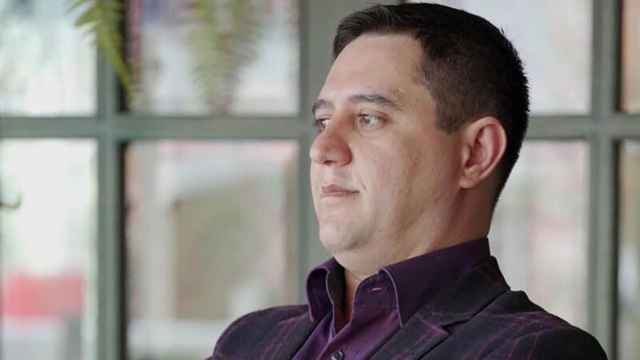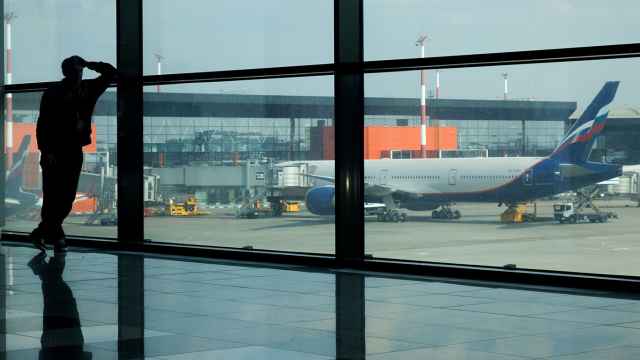The MT Conferences section does not involve the reporting or the editorial staff of The Moscow Times.

Etienne Strijp,
CEO Heineken Russia
The economic downturn must not result in a revision of the adopted investment strategy aimed at sustainable business development, even more so when corporate social responsibility (CSR) has become part of corporate practices. Indeed, the money spent on CSR is an investment in future development, a long-term investment. Some of the benefits and payoffs on these investments, including lower power and water consumption, less carbon emissions etc., are measurable. However, such notions as trust and respect from business partners and customers, or an opportunity to have a constructive dialog with authorities cannot be measured in figures, yet they are indispensable for efficient business expansion.
Cost cutting is, for many companies, the most obvious response to the challenges the current economic situation presents. In most cases, labor costs are reduced through layoffs, and advertising budgets or CSR costs are cut. The reason is simple: when the core business is in trouble, corporate charity expenses take a back seat.
But our company's experience demonstrates that the most obvious route isn't always the one to take. We didn't cut CSR expenses this year and will not do so in 2016. We consider it a strategic activity that doesn't depend on the current economic environment.
The reason is simple: CSR is an integral part of the company's core business.
I would like to begin by highlighting the specific nature of our industry: beer brewing is subject to strict government oversight; it is a focal point for media, social agencies and government authorities. Besides, the making of our products involves the use of three socially important resources: water, farm produce and electric power. We send a clear message to local communities by systematically reducing the consumption of each of these resources as part of our Brewing a Better World strategy. We demonstrate our care for natural resources that have an impact on the environmental and social situation. Let's not forget that saving resources also has a long-term cost-cutting effect for HEINEKEN Russia.
We have been systematically meeting our ambitious goals. We fulfilled most of our commitments in 2014 under the Brewing a Better World strategy. HEINEKEN's most notable achievements in saving resources and energy include a 3 percent reduction in relative water consumption compared to last year and a 32 percent reduction over the six years since 2008. Reducing carbon emissions is also a focus area for HEINEKEN. The company has developed and implemented its own model for keeping track of its carbon footprint: it pinpoints production processes that maximize the reduction of carbon emissions and takes steps to improve these processes. As an example, we were able to cut CO2 emissions generated by our distribution unit by 8.3 percent in 2014.
The initiatives are not limited to the reduction of emissions and resource consumption. As part of our effort to build relations with local communities, we have been successfully running environmental programs "Clean Shores of Lake Baikal" and "Clean Shores of Amur River." The company finances the construction of waste and recycling infrastructure and, more importantly, holds numerous events that develop a responsible attitude to the unique natural areas and prevent littering on the shores of those water bodies, which have a large significance for Russia.
HR policy is yet another area where many measures have been introduced, particularly in occupational safety and health. Every year, we reduce injuries and invest in training programs that help build a safety culture and develop professional and leadership skills in employees.
Another important reason why sustainable development programs are needed is that they can be used as tools to protect the right to conduct business, manage reputation and risks, and build relations and have a dialog with the authorities, the partners and the society.
The main specific feature of the Russian market is a real alcohol abuse problem and an abnormal consumption structure with a preference for hard liquor. This environment is associated with a constant risk of new populist anti-alcohol campaigns. Our task as a responsible brewer is to make a constant and systematic effort to prevent alcohol abuse. The society and the government need to be made aware that the problem can be solved — not quickly but effectively — if comprehensive and targeted preventive measures are taken. This provides the context for our partnership projects aimed at raising awareness and initial prevention of alcohol abuse, such as "Auto Sobriety," "I am Responsible for Myself" and ".NET." Other industry leaders are engaged in similar activities. It's true that such programs have a delayed effect, but they are the most effective way to reduce alcohol consumption, as confirmed by the European experience.
I would like to conclude by pointing out that the 2008–2009 crisis was kind of a stamina test for CSR. The society was looking very closely at how the business community handled the "it's hard for everybody" situation, whether it was cutting its social programs. To maintain the effort and the spending on sustainable development under such circumstances means to keep being trusted. And trust is something no successful business can do without.
The MT Conferences section does not involve the reporting or the editorial staff of The Moscow Times.
A Message from The Moscow Times:
Dear readers,
We are facing unprecedented challenges. Russia's Prosecutor General's Office has designated The Moscow Times as an "undesirable" organization, criminalizing our work and putting our staff at risk of prosecution. This follows our earlier unjust labeling as a "foreign agent."
These actions are direct attempts to silence independent journalism in Russia. The authorities claim our work "discredits the decisions of the Russian leadership." We see things differently: we strive to provide accurate, unbiased reporting on Russia.
We, the journalists of The Moscow Times, refuse to be silenced. But to continue our work, we need your help.
Your support, no matter how small, makes a world of difference. If you can, please support us monthly starting from just $2. It's quick to set up, and every contribution makes a significant impact.
By supporting The Moscow Times, you're defending open, independent journalism in the face of repression. Thank you for standing with us.
Remind me later.





